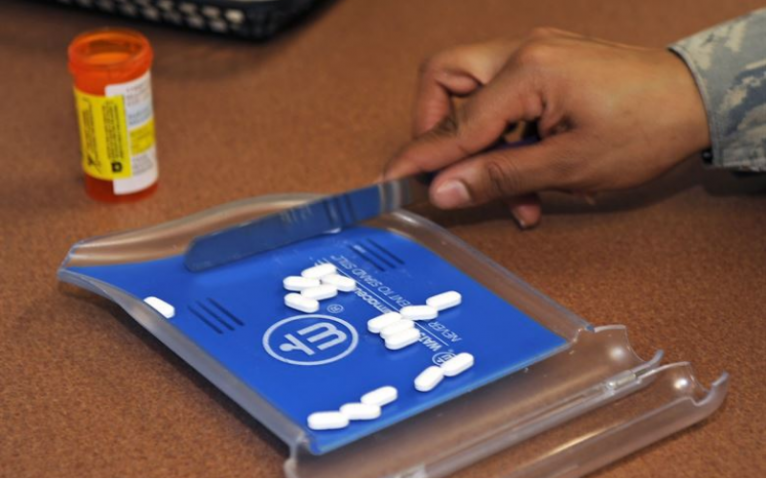Vicodin is a popular painkiller medication that accounts for most pain relief prescriptions in the United States—with the rise of opiate prescriptions and misuse cases, learning more about Vicodin addiction facts helps increase awareness and prevention. Even though the Vicodin brand has discontinued in the US, generic versions are still available and still place risk for addiction.
What is Vicodin?
Vicodin is the brand name for hydrocodone, an opioid pain medication used to treat moderate to chronic pain. However, Vicodin contains a blend of acetaminophen to increase the effects of hydrocodone. Vicodin’s effects mimic those of heroin because it also works by stimulating receptors in the brain that manage its reward mechanism.
Initially, in the late 1990s and early 2000s, prescriptions for Vicodin were rising. It wasn’t until 2014, after the opioid epidemic, that the Drug Enforcement Agency (DEA) changed its classification as a Schedule II drug. Under this classification, drugs have a high potential for abuse and dependency and require supervision and caution.
However, most develop a tolerance for the drug and continue to increase and misuse the medication either for its pain-relieving effects or as a recreational drug.
Other Names for Vicodin
The active ingredient in Vicodin is hydrocodone; thus, many street names are related to this name. Other brand names for Vicodin include:
- Lortab
- Norco
Then, street names for Vicodin and hydrocodone include:
- Bananas
- Fluff
- Dro
- Hydros
- Tabs
- Vikes
- V-itamin
- Watson-387
- 357s
5 Interesting Vicodin Addiction Facts You Should Know
When it comes to Vicodin addiction facts, since its debut, most of its production is consumed in the United States, is the most common opioid prescribed in the country. Researchers believe Vicodin abuse rates quadrupled in the last decade.
1. Genetic Predisposition Matters
While there are many underlying origins to addiction, genetic predisposition is a critical factor. People with a family history of drug addiction are at higher risk of struggling with substance abuse later in life. Among those who develop a substance addiction, close to 60-70 percent have a genetic predisposition.
2. Liver Damage Is a Possibility
Since Vicodin contains high acetaminophen levels, those who abuse the medication can suffer liver damage that could lead to death. Also, when people abuse medicines like Vicodin, they tend to mix it with other substances like alcohol, which can exacerbate liver damage and cause irreversible consequences.
3. Most People Struggle with Co-Occurring Disorders
In general, those who struggle with Vicodin addiction start after taking the medication through a prescription. Additionally, most people who experience chronic pain or struggle with mental health disorders are at higher risk of developing a chemical dependency.
4. People Can Be Allergic to Vicodin
Beyond the risk of addiction, some people can be allergic to acetaminophen or hydrocodone. The same restrictions apply to those with asthma or respiratory conditions. Most people think allergic reactions are the least of their addiction problems, but it can have severe consequences.
5. Vicodin Reacts to Many Medications
Like other prescription drugs, Vicodin can have reactions towards other medications. For example, those who take MAO inhibitors, such as linezolid, should not take Vicodin as it can cause a condition known as serotonin syndrome, which can cause seizures and death.
Vicodin Addiction Statistics
Understanding the main Vicodin addiction statistics gives us an insightful look at the prescription drug abuse crisis in America. The rising numbers of overdose deaths to the increasing numbers of prescriptions are signs of a significant problem.
- As of 2012, Vicodin was the most common opioid prescribed by health professionals.
- In 2009 alone, nearly 16 million Americans 12 and older used prescription Vicodin for a non-medical purpose.
- In 2010 an average of six percent of children 18 and younger abused the drug.
- From 2001 to 2011, prescriptions for Vicodin rose 660%, almost four times the increase of methadone and oxycodone.
- In 2013, close to 5% of high-school seniors reported using Vicodin.
Vicodin Addiction Treatment Options
Vicodin addiction isn’t a death sentence, or at least it doesn’t have to be. Still, because of the severe consequences of withdrawal symptoms, having the right support system is critical to prevent deadly outcomes.
Starting with a detox program paired with a partial hospitalization program (PHP) that eases withdrawal symptoms and provides patients with a secure and supervised environment to begin their recovery is often the first step. Many treatment facilities can help drug addicts and family members structure the right treatment plan.
At Lighthouse Recovery Institute, our Vicodin addiction recovery programs include:
Vicodin Medical Detox: In this clinically supervised detox process, we ensure the patient’s safety under medical supervision and make the withdrawal phase as comfortable as possible by minimizing withdrawal symptoms and using medication-assisted treatment services to guarantee a complete detoxification process.
Partial Hospitalization Programs: Long-term use of Vicodin and its generic versions can lead to many health issues. As a result, it’s essential to seek the right medical treatment to prevent these from becoming permanent consequences and prevent a Vicodin overdose.
Intensive Outpatient Programs: When patients are looking to seek addiction treatment while maintaining daily obligations like work, school, or caregiving, IOPs are a more flexible option that still gives people access to the help they need.
Long-term Recovery Programs: With long-term recovery assistance, patients can have the ongoing support they need to maintain long-lasting sobriety. Because recovery programs are crucial to relapse prevention, we offer patients access to support groups to help them navigate their opioid addiction.
Get Help Today
If you or a loved one is struggling with drugs and alcohol abuse, ask for help immediately. Please, call the Lighthouse Recovery Institute today and speak with our addiction specialists to learn more about our comprehensive and personalized addiction treatment programs. Our treatment centers offer unique and customized treatment plans because we believe no two addictions are alike.









